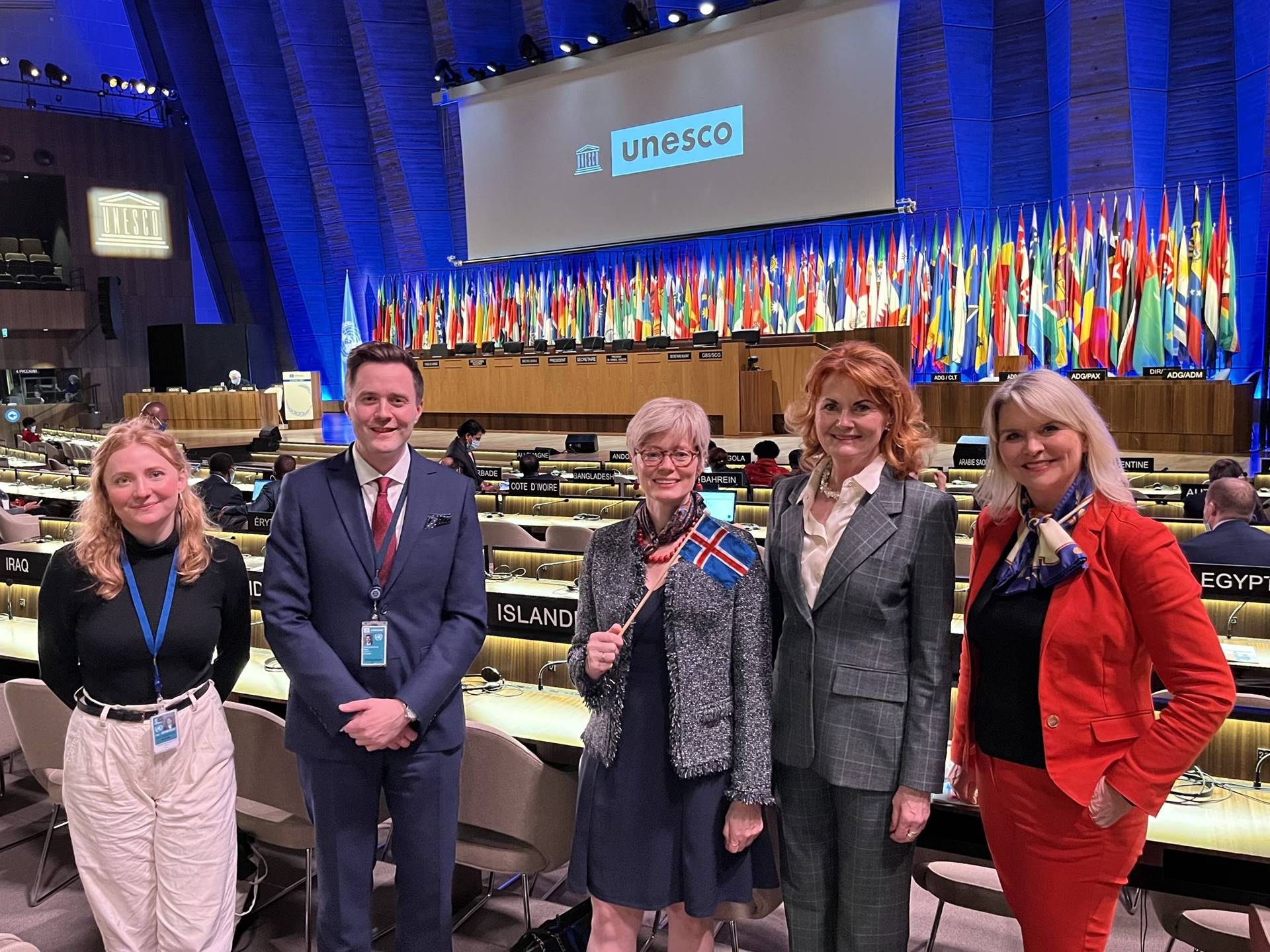Iceland elected to the UNESCO Executive Board
Iceland has been elected to the Executive Board of the United Nations Educational, Scientific and Cultural Organisation at its ongoing General Conference in Paris. Iceland received 168 votes in today’s election.
The Government of Iceland announced its decision to put forward Iceland’s candidacy in 2018. The Permanent Delegation of Iceland to UNESCO, the Ministry for Foreign Affairs and the Ministry of Education, Science and Culture, as well as the Icelandic National Commission for UNESCO, have increased Iceland’s activities within the Organisation in the past few years. The Executive Board is composed of 58 Member States of 6 regional groups.
The Board acts under the authority of the UNESCO General Conference and its responsibilities include follow-up to decisions and the Organisation’s mid-term strategy and budget, making decisions on projects and reviewing oversight reports.
UNESCO is a UN specialised agency with the mission to contribute to the building of a culture of peace and security by promoting international cooperation within the Organisation’s policy areas. One of UNESCO’s responsibilities within the UN system is the implementation of Sustainable Development Goal number four on education. It is also the UN agency specially mandated to promote freedom of expression and the media. The Organisation’s diverse programmes include within the fields of science, culture and cultural heritage. UNESCO administers the well-known World Heritage List.
The implementation of the UN SDGs, gender equality, a human rights-based approach, active participation by young people and inclusion will form the core of Iceland’s emphases during its term on the Executive Board. Iceland will aim to ensure that UNESCO is and continues to be an active and effective organisation in its field, operating under effective leadership and in cooperation with the appropriate UN agencies. Iceland will also support the continuing reform process and development of UNESCO.
The Ministry for Foreign Affairs signed a framework agreement with UNESCO in 2019 on development cooperation, supporting programmes in the fields of education, freedom of expression and the safety of journalists. One of Iceland’s biggest development cooperation project was recently transferred from under the umbrella of the UN Universities under the auspices of UNESCO and now these four capacity development programmes operate through a new Category II Centre, under the name of GRÓ - International Centre for Capacity Development. Additionally, representatives of the Vigdís International Centre for Multilingualism and Intercultural Understanding, are part of the global taskforce on the International Decade of Indigenous Languages.
Iceland’s candidacy was supported by the Nordic countries, which have taken turns to serve on the Board since the establishment of UNESCO.

